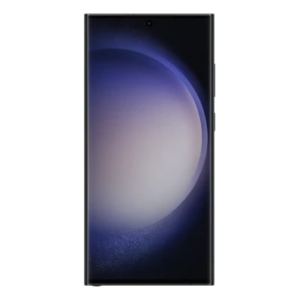When launching the iPhone 14 Pro last autumn Apple announced a long-touted new feature enabling users to connect to satellites to contact the emergency services when cellular and Wi-Fi services were unavailable.
It was rumored that the Samsung Galaxy S23 would follow suit. However, the safety was nowhere to be seen when Samsung revealed its 2023 flagships at Unpacked on February 1.

Save big on the Samsung Galaxy S23 Ultra SIM-free or with unlimited data
Mobiles.co.uk has already dropped two deals on the Samsung Galaxy S23 Ultra.
Pick up the latest Samsung phone, unlimited data, texts and minutes all for just £315 upfront and £45/month on Vodafone. That’s just £1395 over the course of the 2-year contract, which is less than the price of the phone outright.
Alternatively, you can pick up the 512GB phone SIM-free for £1249 and get double the data for the same price as the 256GB model.
- Mobiles.co.uk
- Unlimited data
- £315 upfront, £45 a month
View Deal
Sure enough, the SOS technology hasn’t made it into this release. That’s because Samsung doesn’t believe the technology is ready for prime time.
That’s a decidedly Apple-like approach to explaining away the absence of new features from Samsung, who usually throws more caution to the wind in debuting features and takes pride in being first. The comments came from Samsung boss TM Roh who told CNET the company would be ready to incorporate satellite connectivity when the technology had matured.
He said: “When there is the right timing, infrastructure and technology [is] ready, then of course for Samsung Galaxy, for our mobile division, we would also actively consider adopting this feature as well. I do not believe that is the end-all or be-all of the solutions to ensure peace of mind among users.”
Apple’s application of the technology can only send brief messages to be relayed to the emergency services, rather than a satellite phone that can offer voice communications. It is more of a start than an end point, but it has already led to documented rescues.
Roh says there are other ways smartphones can keep their users safe beyond satellite connectivity, telling the publication that improving the quality of the sensors and range of the phones is also important.